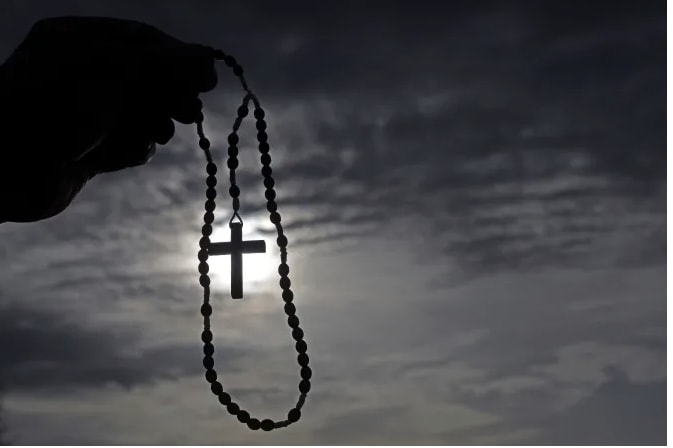
BOSTON, MASSACHUSETTS – Three online shops that sell rosaries have reported a boost in sales following a controversial article published Sunday in The Atlantic magazine which attempted to link the rosary to right-wing extremism in the United States.
In the article, Daniel Panneton claimed, “The rosary has acquired a militaristic meaning for radical-traditional (or “rad trad”) Catholics.”
“Militia culture, a fetishism of Western civilization, and masculinist anxieties have become mainstays of the far right in the U.S.—and rad-trad Catholics have now taken up residence in this company,” he continued.
The article sparked a frenzy of comments on social media, as Catholics shared photos of their rosaries. Some observed that the article’s thesis had an anti-Catholic bias.
Shannon Doty, CEO of Rugged Rosaries, told CNA Monday that she saw “a pretty good boost in sales” on both of her websites, RuggedRosaries.com and MonkRosaries.com amid the reaction to the article.
Rugged Rosaries sells durable rosaries, inspired by rosaries that used to be used in the military during World War I.
Doty said that both websites have a loyal […]










rosary (not < ME rosarie = rose garden); < Western Semitic het-resh-oo-zayin kharuz = beads, strung, threaded (see verse)
verse < ME vers, fers < OE fers < L versus = a row, line of poetry <? vertere = to turn < het-resh-zayin (w)araz = rhyme (when the het had a W-sound, see rosary)
How ironic. I pray the rosary for peace, trusting in the motherly face of the Divine, and meditating on the mysteries of Jesus’ life. It is troubling to me that the right-wing fanatics are re-branding the rosary as militant triumphalism, but I suppose there has been that stream of thought ever since Pope Pius V associated the rosary with winning the Battle of Lepanto in the 16th century. What medieval peasants used for simple meditation and peace was co-opted by inquisitors and now by rad trads.